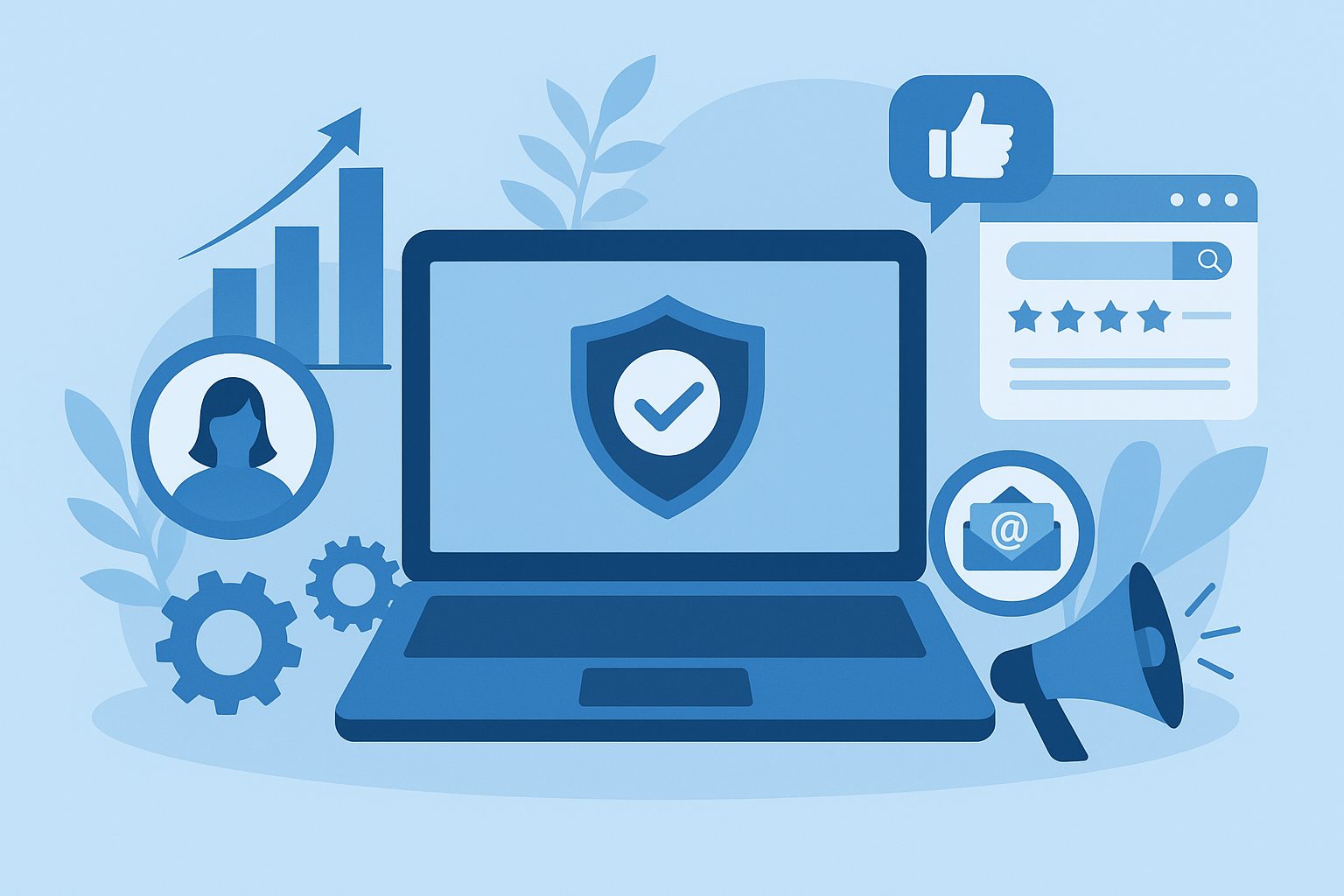
In today’s competitive marketplace, having a strong online presence is no longer optional for insurance providers; it’s essential. With customers increasingly turning to search engines and social media to research policies and compare agents, digital marketing for insurance agencies has become one of the most powerful tools to attract leads, build relationships, and close deals.
But digital marketing isn’t just about flashy ads or social media posts; it’s about building credibility, visibility, and trust with the right people at the right time. In this guide, we’ll walk you through proven digital strategies for insurance businesses that help convert cold traffic into warm leads and loyal policyholders.
1. Invest in Local SEO to Drive Targeted Traffic
Search engines are the first stop for most consumers looking for insurance. Whether they’re searching for “life insurance agent near me” or “affordable health plans in [city],” your ability to rank for these queries can make or break your pipeline.
Best Local SEO Practices for Insurance Agencies:
- Claim and optimize your Google Business Profile (formerly Google My Business).
- Include local keywords like “home insurance in Houston” or “car insurance Los Angeles” throughout your website.
- Collect and respond to client reviews regularly.
- Add location-specific service pages and blog content.
💡 If you’re still unsure about the difference between local and traditional SEO, check out our guide on Local SEO vs. Traditional SEO.
2. Build Authority with High-Value Content Marketing
Insurance is a trust-based business. People don’t hand over their personal or business information to just anyone—they look for expertise, empathy, and value. That’s where content marketing comes in.
Create blog posts, videos, guides, or even webinars that help answer common questions:
- What’s the difference between term and whole life insurance?
- How can small businesses protect themselves with liability coverage?
- What are the top 3 things to know before buying renters insurance?
By educating your audience, you position yourself as a helpful expert—not just another salesperson.
Need inspiration? See how we guide businesses through the Inbound Marketing Funnel to turn value-driven content into consistent lead generation.
3. Leverage Email Marketing to Nurture Leads
Once someone downloads a guide, requests a quote, or books a call, don’t leave them hanging. Insurance decisions often take time, and email marketing is your best tool for staying top-of-mind.
Use segmented and automated email campaigns to:
- Welcome new leads and educate them about their options.
- Share client success stories or FAQs.
- Remind contacts of policy renewal dates.
- Offer seasonal promotions (e.g., flood insurance before hurricane season).
Your email marketing journey should feel personal, helpful, and consistent. To learn more about building effective email flows, check out our blog on The Email Marketing Journey.
4. Run Targeted Ads on Google and Meta
Paid advertising can bring immediate visibility to your agency, but only if it’s done right.
For insurance businesses, Google Ads and Facebook (Meta) Ads are both excellent platforms to target potential clients based on intent, location, and life stage.
Use Paid Ads To:
- Promote specific insurance services (e.g., auto, life, business).
- Retarget website visitors with educational content.
- Highlight reviews, offers, or free consultations.
Not sure where to invest your budget? Our comparison of Facebook vs. Google Ads breaks it down for insurance marketers looking for the highest ROI.
5. Build a Strong Social Media Presence
People often engage with insurance providers on social media long before they convert. It’s where they learn about your brand, your values, and how you treat clients.
Social Media Tips for Insurance Agencies:
- Post weekly educational tips, client testimonials, or industry updates.
- Use short-form video to explain complex terms or showcase your team.
- Run lead-generation campaigns through Instagram DMs or Facebook Lead Forms.
- Stay active in local community groups and respond to comments quickly.
Social media isn’t just about likes—it’s about building human connection and trust. To learn how to turn engagement into real business, read our article on Social Media Lead Generation.

6. Use CRM and Marketing Automation to Save Time
A good Customer Relationship Management (CRM) platform like Go High Level helps you stay organized, track leads, and automate communications, all in one place.
Insurance agents can use CRMs to:
- Set reminders for follow-ups and renewals.
- Send personalized SMS and email campaigns.
- Create quote request pipelines that move prospects forward.
If you’re ready to scale, check out how Go High Level is transforming patient (and client) engagement, its features are perfect for small and mid-sized agencies.
7. Ask for and Showcase Client Reviews
Trust is everything in insurance. Positive reviews can be the deciding factor between you and a competitor.
Make it easy for happy clients to leave reviews on:
- Google Business Profile
- Facebook Pages
- Trustpilot or Yelp
Then repurpose them across your website, social media, and emails.
Final Thoughts: Why Digital Marketing Matters in Insurance
Digital marketing for insurance isn’t just about growth—it’s about trust, education, and visibility. Whether you’re selling individual health plans or complex commercial policies, the right strategy can help you connect with real people who need your solutions.
At North Vista Marketing, we help insurance providers build personalized, scalable digital strategies that align with your audience and goals. If you’re ready to stop relying on referrals and start building a predictable lead pipeline online—we’re here to help.
Schedule a call with our team today and let’s build a digital marketing plan that helps your agency grow with confidence.







